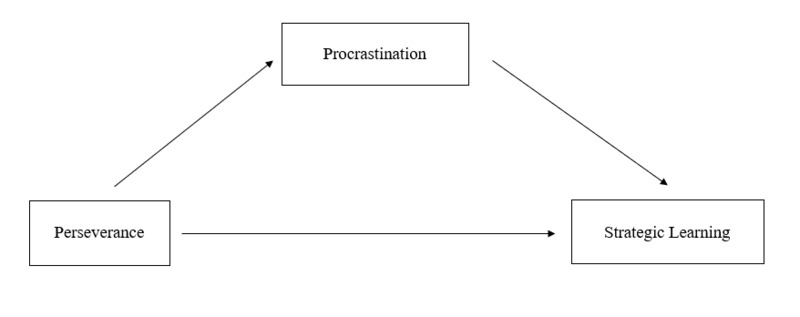Introduction
Introduction
Grit is perseverance and passion for long term goals (Duckworth et al., 2007). Grit has been implicated in academic achievement and identified as a predictor of academic success, above and beyond cognitive ability (Guney & Lynn, 2016). In particular, perseverance of effort has been linked to greater use of strategic learning (Welch & Vitacco, 2013). Strategic learning use includes time management, organized studying, and self-monitoring of goal progress and has been linked to greater academic success (Alhadabi & Karpinski, 2020; Tait et al., 1998). In addition to strategic learning, greater perseverance of effort has been associated with other forms of studying behaviors such as lower levels of procrastination (Wolters & Hussain, 2014). Procrastination is the delaying of a task that is typically aversive and is a common behavior of college students (Ellis & Knue, 1977). Procrastination has been linked to poorer academic performance (Zarick & Stonebraker, 2009) and has also been associated with less use of strategic learning strategies (Grøm Saele et al., 2017).
While perseverance of effort has been related to better learning strategies and academic performance, it is unclear what cognitions or behaviors may contribute to this relationship. Research has suggested a distinction between self-regulation and grit where grit reflects an ability to attain long-term goals and self-regulation is used in the management of day-to-day conflict (Hagger & Hamilton, 2019). Given procrastination is thought to reflect poor self-regulation (Wolters & Hussain, 2007), and self-regulation is key in strategic learning use (i.e. self-monitoring, time-management; Tait et al., 1998), it is possible that lower levels of procrastination may explain the relationship between greater perseverance of effort and strategic learning use. This study examined the relationships between perseverance of effort, procrastination, and strategic learning use and it was hypothesized that perseverance would be positively associated with strategic learning use and procrastination would be negatively associated with strategic learning use. Furthermore, procrastination would mediate the relationship between perseverance of effort and strategic learning use.

